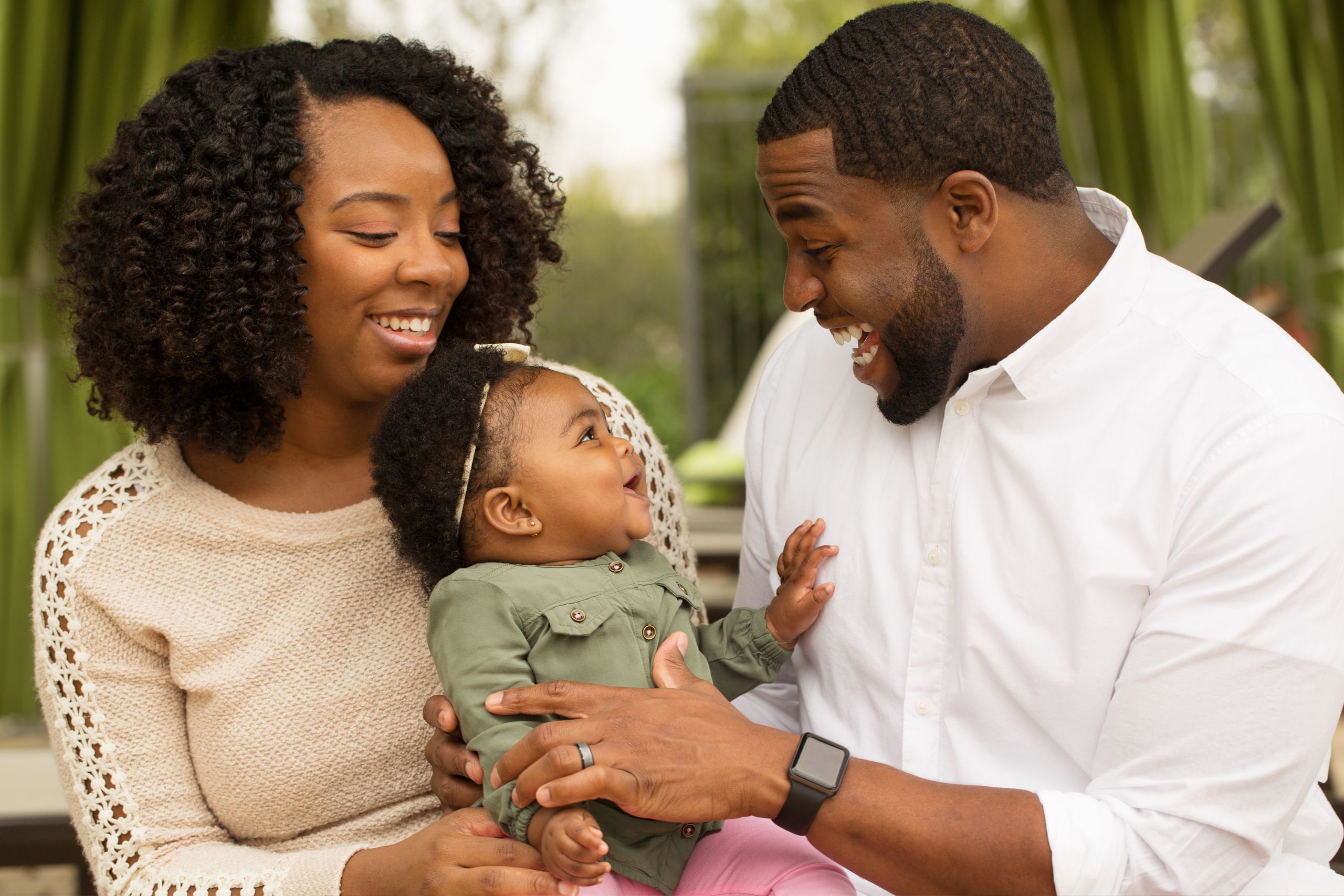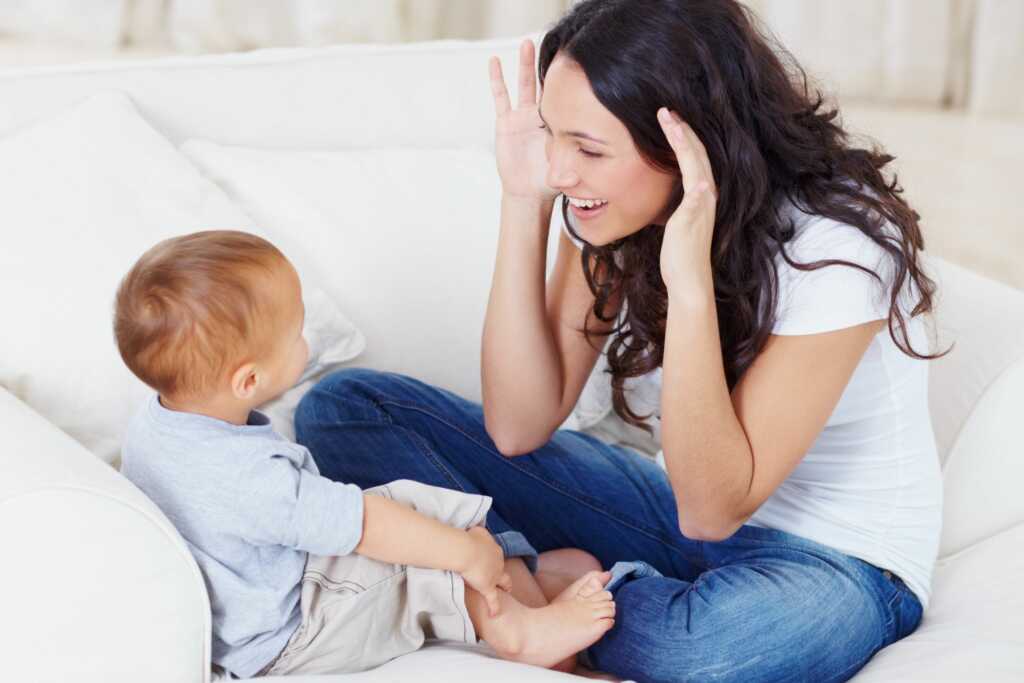Blog

Ready to Talk: Brecksville Speech Therapists Have 5 Simple Games to Encourage Your Baby’s First Words
For parents, few moments rival the thrill of hearing your baby’s first words. Whether it’s “mama,” “dada,” or an enthusiastic “uh-oh,” these early sounds represent a miraculous milestone in your child’s development. At Therapy & Wellness Connection in Brecksville, our Brecksville speech therapists work with families every day to support and celebrate these precious communication breakthroughs.
Understanding when and how babies develop language can help you feel more confident in supporting your little one’s journey to talking. More importantly, knowing simple, playful ways to encourage speech development can transform everyday moments into powerful learning opportunities.
When Do Babies Typically Say Their First Words?
According to the Centers for Disease Control and Prevention (CDC), most babies say their first words around 12 to 15 months of age. Research has shown that by six months of age, most children recognize the basic sounds of their native language, laying the groundwork for those exciting first words to come.
However, it’s essential to remember that every child develops at their own pace. The most intensive period of speech and language development for humans is during the first three years of life, a period when the brain is developing and maturing. This means that the foundation you’re building now—through play, interaction, and simple games—has a lasting impact on your child’s communication skills.
If you have concerns about your child’s speech development, know that you’re not alone, and early intervention can make a tremendous difference. Our experienced Brecksville speech therapists are here to partner with you in supporting your child’s unique developmental journey.
The Power of Play in Language Development
Before we dive into specific games, it’s important to understand why play is so crucial for language development. Babies and toddlers learn best when they’re engaged, having fun, and interacting with the people they love most. When you play with your child, you’re not just entertaining them—you’re creating a rich language-learning environment where words have meaning, communication has purpose, and talking is joyful.
The games we’ll share are designed to be simple, require no special equipment, and can be incorporated into your daily routine. They target key skills that support language development: turn-taking, listening, imitation, joint attention, and associating words with objects or actions.
5 Simple Games to Encourage Your Baby’s First Words
1. Peek-a-Boo with Sound Effects

This classic game is a language-building powerhouse. The predictable structure helps babies learn about cause and effect, anticipation, and turn-taking—all crucial for conversation.
How to play: Cover your face with your hands or a blanket, then reveal yourself with an enthusiastic “Peek-a-boo!” Add variety by using different words: “Where’s Mommy? Here I am!” or “I see you!”
Why it works: The repetition helps babies learn words through multiple exposures. The element of surprise keeps them engaged, and the face-to-face interaction is essential for language learning. As your baby grows, encourage them to take their turn hiding and revealing, and listen for any sounds they make—even a giggle or “boo” sound is communication!
Speech therapist tip: Pause before you say “boo” and look at your baby expectantly. This gives them a chance to fill in the word or make a sound, which is a crucial step in learning to talk.
2. The Narration Game
This isn’t so much a game as a communication habit that makes a world of difference. Simply narrate what you and your baby are doing throughout the day.
How to play: As you go about daily routines, describe what’s happening: “Let’s change your diaper. Here’s a clean diaper. Up go your legs! All done!” During bath time: “Splish, splash! The water is warm. Let’s wash your tummy.”
Why it works: Babies learn words by hearing them repeatedly in context. When you pair words with actions and objects, you help your baby make those important connections between sounds and meaning.
Speech therapist tip: Keep sentences simple and emphasize key words. Use lots of repetition—hearing the same words in similar contexts helps babies learn faster. Don’t worry about sounding silly; your baby loves hearing your voice and is soaking up every word!
3. Copy-Cat Sounds
Babies love when you imitate them, and this game builds the foundation for back-and-forth conversation.
How to play: When your baby makes a sound—whether it’s a coo, babble, or even a raspberry sound—repeat it back to them with enthusiasm. Wait for them to respond, then copy that sound too. Keep the “conversation” going as long as your baby is interested.
Why it works: This game teaches turn-taking, which is fundamental to conversation. It also shows your baby that their sounds have power and meaning, encouraging them to vocalize more. Plus, when babies hear their own sounds, it helps them practice and refine those sound combinations.
Speech therapist tip: Once you’ve copied your baby’s sounds several times, try adding a slight variation or introducing a new sound. This gently expands their sound repertoire while keeping the game fun and engaging.
4. What’s That? The Pointing and Naming Game
This game combines joint attention (looking at the same thing together) with vocabulary building.
How to play: Point to objects around you and name them with enthusiasm: “Look! A dog! Woof woof!” or “What’s that? It’s a ball! Ball!” Encourage your baby to point too, and always respond to their pointing by naming what they’re indicating.
Why it works: Pointing is a precursor to talking—it’s your baby’s way of communicating before they have words. When you respond to their points with words, you’re helping them learn that things have names and that communication is a two-way street.
Speech therapist tip: Start with objects your baby is already interested in. If they’re fascinated by the ceiling fan, that’s your starting point! Follow their lead and label what captures their attention. Keep the language simple—one or two words is perfect for young babies.
5. Song and Action Play
Songs with hand motions or actions are magical for language development. Think “Itsy Bitsy Spider,” “Wheels on the Bus,” or “If You’re Happy and You Know It.”
How to play: Sing familiar songs with your baby, doing the hand motions or actions together. Slow down the tempo and exaggerate the movements. As they become familiar with the song, pause before key words and wait to see if your baby fills them in—through gesture, sound, or eventually, words.
Why it works: Songs are inherently repetitive, which aids learning. The melody makes words more memorable, and the actions help create multisensory connections. Plus, songs create joyful shared experiences that motivate babies to communicate.
Speech therapist tip: Don’t worry if you can’t sing well—your baby doesn’t care! The key is repetition and enthusiasm. Choose two or three songs to sing regularly so your baby can learn them deeply, rather than singing many different songs sporadically.
When to Seek Support from Brecksville Speech Therapists
While children develop at different rates, it’s important to be aware of warning signs that may indicate a need for professional support. Consider reaching out to our Brecksville speech therapists if your child:
- Isn’t babbling or making many sounds by 12 months
- Isn’t saying any words by 15-16 months
- Isn’t combining words by 24 months
- Has lost speech or language skills they once had
- Isn’t responding to their name or to sounds in their environment
- Isn’t using gestures like pointing or waving by 12 months
Remember, early intervention is incredibly effective. If you have any concerns, trust your instincts. Our compassionate team at Therapy & Wellness Connection understands that every parent wants the best for their child, and we’re here to provide guidance, support, and evidence-based therapy when needed.
How Brecksville Speech Therapists Can Help
At Therapy & Wellness Connection, our experienced Brecksville speech therapists take a family-centered, play-based approach to early language development. We understand that you know your child best, and we work collaboratively with you to support your child’s communication growth.
Our speech therapy services for young children include:
- Comprehensive evaluations to understand your child’s current communication skills and identify areas for growth
- Individualized therapy plans tailored to your child’s unique needs, interests, and developmental stage
- Parent coaching and education because you are your child’s most important teacher, and we want to empower you with strategies you can use every day
- Play-based therapy that makes learning fun and keeps children engaged and motivated
- Multidisciplinary collaboration with our occupational therapists, physical therapists, and other professionals when appropriate to support your child’s overall development
Our speech therapists are not only highly trained professionals but also compassionate partners in your parenting journey. We celebrate every milestone with you, and we’re committed to helping your child find their voice.
Creating a Language-Rich Environment at Home
Beyond specific games, there are general principles that can make your home a language-rich environment:
- Talk, talk, talk. The more words your baby hears, the better. Studies show that children who are exposed to more language in their early years develop stronger communication skills.
- Read together daily. Even young babies benefit from looking at books. Point to pictures, make animal sounds, and keep it interactive and fun.
- Limit screen time. Screen time is not recommended for children younger than 2 years of age. Babies learn by talking, playing, and interacting with others. Face-to-face interaction is irreplaceable for language development.
- Respond to all communication attempts. Whether your baby points, reaches, vocalizes, or looks at something, treat it as communication and respond. This teaches them that their attempts to communicate are valued and effective.
- Be patient. Give your child time to respond. In our fast-paced world, it’s tempting to fill every silence, but children need processing time to understand what’s been said and formulate a response.
The Journey Ahead
Your baby’s journey to first words is an exciting adventure, filled with small victories and precious milestones. By incorporating simple games into your daily routine, responding to your child’s communication attempts, and creating a language-rich environment, you’re giving your child a strong foundation for a lifetime of communication.
Remember, if you have questions or concerns along the way, our team of experienced, compassionate Brecksville speech therapists at Therapy & Wellness Connection is here to support you and your family. We believe in the power of early intervention, the importance of family involvement, and the joy of celebrating every communication milestone—no matter how small it may seem.
Your child has so much to say, and we’re honored to help you support them in finding their voice. Here’s to the wonderful journey of first words and all the conversations yet to come!
Therapy & Wellness Connection – your connection to a life without limitations – provides speech therapy to children in Akron, Cleveland, Brecksville-Broadview Heights and surrounding communities. We also offer summer camp, day programs, education services, vocational counseling and more. Call us at (330) 748-4807 or send us an email.
Additional Resources:
ASHA’s Developmental Milestones: Birth to 5 years
More Blog Entries:
